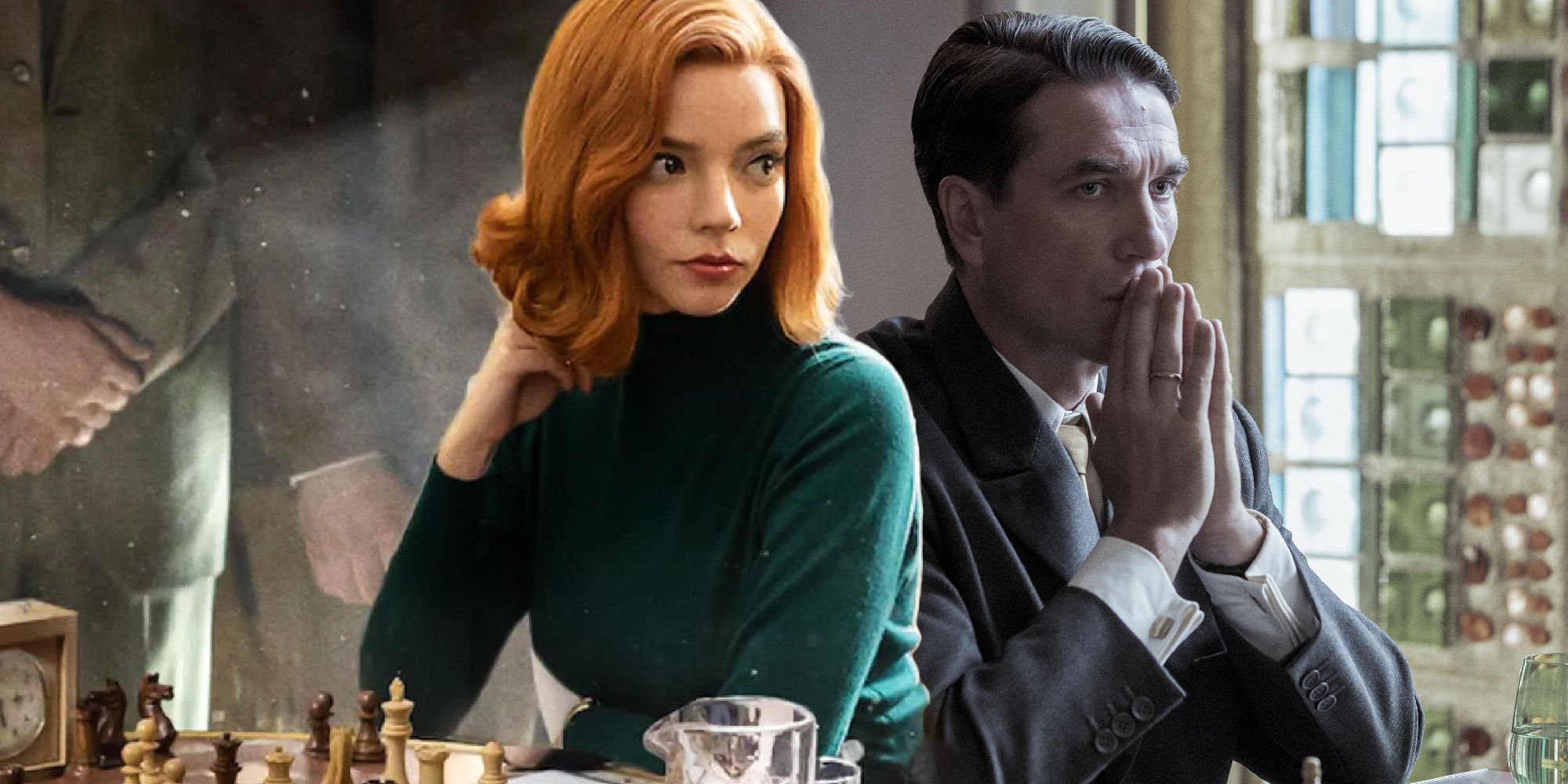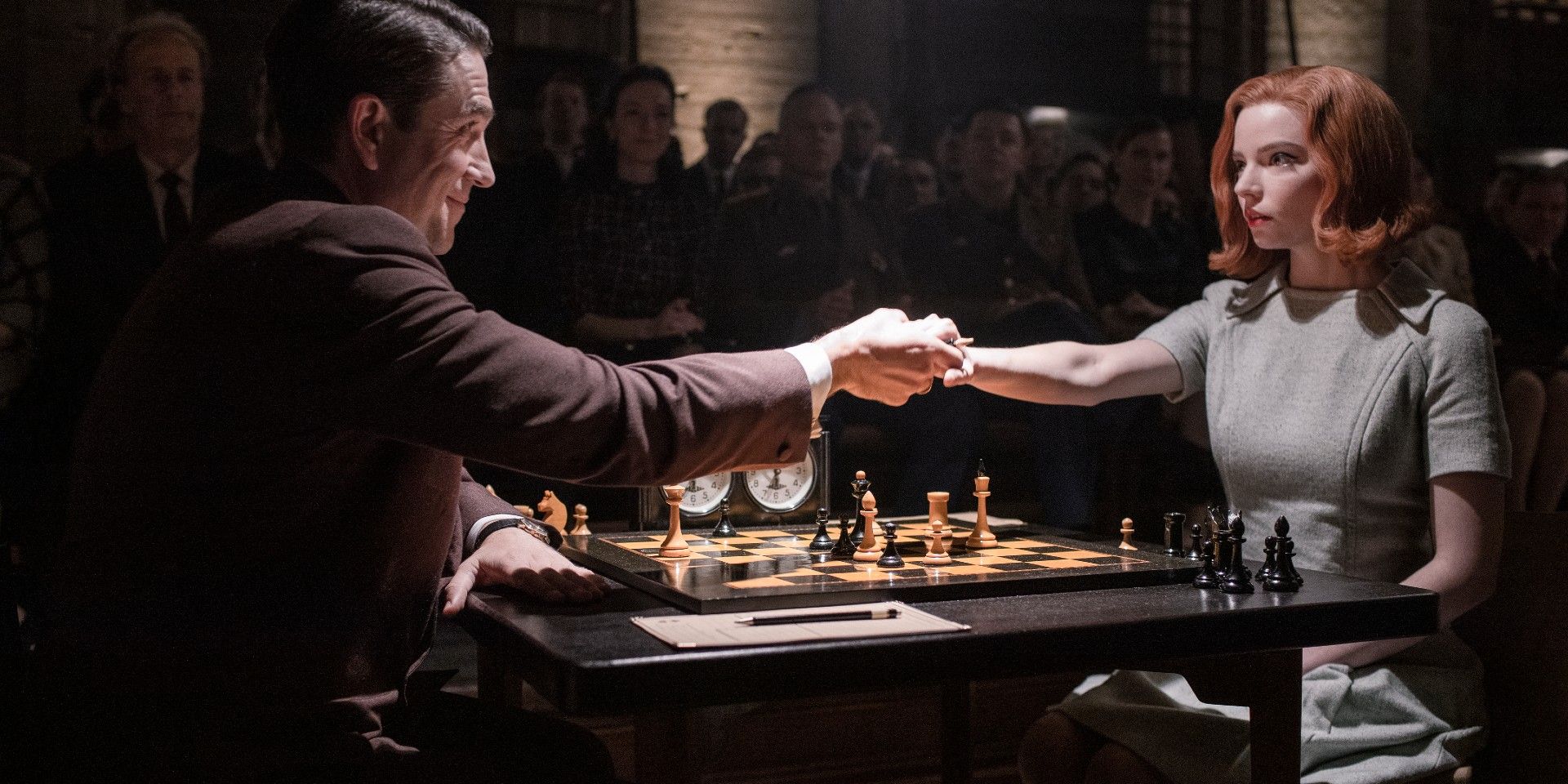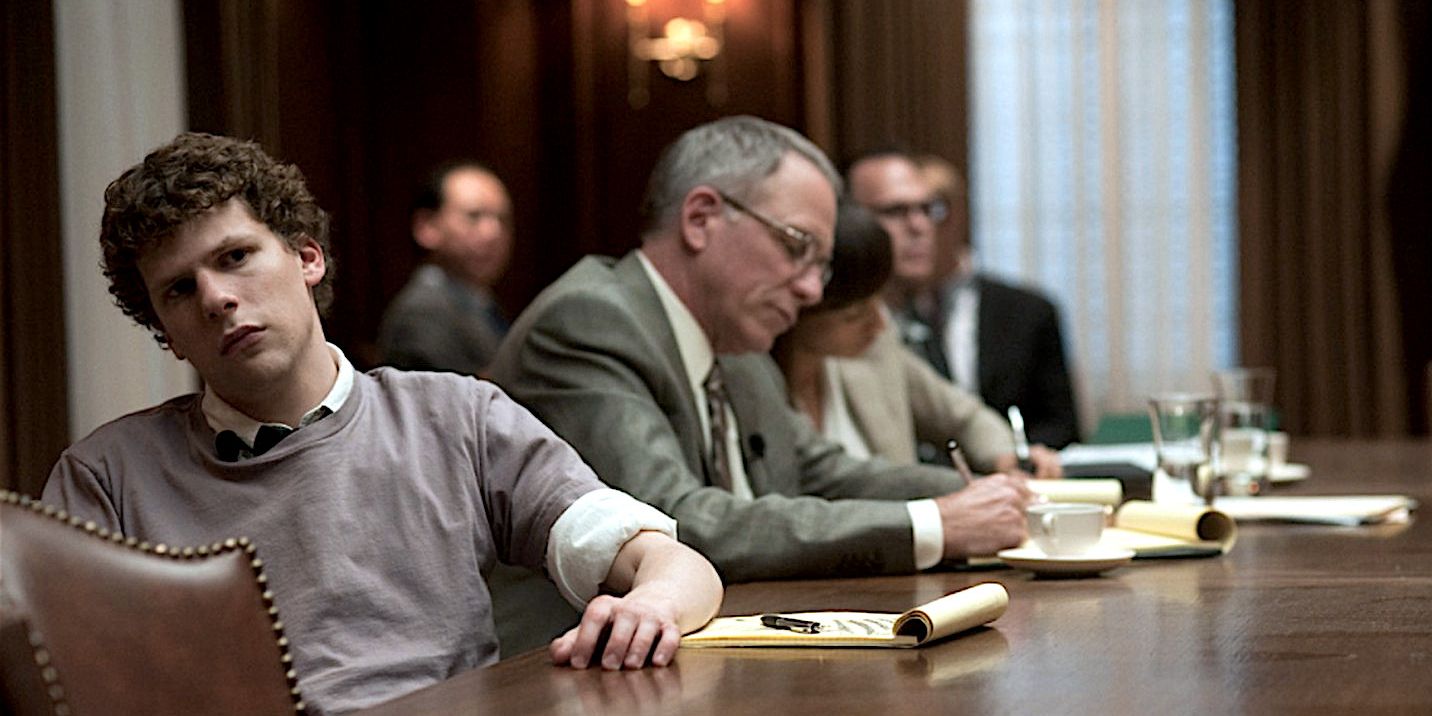
The Queen's Gambit tells an incredible story about Beth Harmon, who isn't a real-life chess player, but someone whose story still captivates in ways other Hollywood biopics don't. Of course, as inspiring as Beth's journey might be, it is only a fictional tale. And yet, The Queen's Gambit has a lot in common with traditional Hollywood biopics. The miniseries may not be a biopic itself, but its fictional nature actually allows it to experiment with, and ultimately improve upon, the biopic formula established in so many other films and television shows.
The Queen's Gambit follows the life of the entirely imaginary Beth Harmon, who became a chess prodigy from a young age. While Beth has a stunning ability at the game, she finds this tempered by her own personal struggles and eventual issues with substance abuse, taking the series between epic tactical high and deeply tragic personal lows.
The Queen's Gambit most obviously sets itself apart from biopics in its unpredictable storytelling. Because Beth is a completely fictional character, the audience has no idea where her journey may take her. And yet, the show does remain historically accurate in its depiction of different cities, as well as the evolution of chess as a sport. Unlike The Queen's Gambit, shows like The Crown or Hollywood, both of which have found success on Netflix in 2020, can only go so far in surprising the audience or subverting expectations. Viewers watch these shows with a preexisting familiarity with their real-life referents, or are simply a Google search away from finding out what happens. But sticking to the facts shouldn't handicap a biopic. So how can fact-based films and shows take a hint from Scott Frank and the rest of the creative team behind The Queen's Gambit?

The Queen's Gambit excels throughout on the heels of its original story, but this becomes especially apparent in the show's final episode. Even after losing her match against Borgov in Paris in the show's penultimate episode, it remained clear that the show would culminate in a matchup with Borgov. What was less clear was whether or not Beth would prevail over Borgov at the Moscow Invitational in the suspenseful final episode. If The Queen's Gambit had been adapted from the life of a real chess player, this final matchup between Borgov and Beth would have been sapped of its intensity. Beth ultimately defeats Borgov in Moscow, which could certainly be read as a rather safe and expected conclusion. Still, the buildup to this moment is highly satisfying, as Beth undergoes a vast majority of her character development over the course of the show's final two episodes. Overcoming her struggles with addiction and mental illness, Beth makes up for her previous mistakes and defeats Borgov on her own terms.
Searching for Bobby Fischer, arguably the most popular chess biopic, features a very similar ending to that of The Queen's Gambit. Josh Waitzkin, whose life the film is based on, defeats an elite opponent named Jonathan Poe. Poe's real-life counterpart was named Jeff Sarwer - however, and the real-life match between the two of them ended in a draw. The film simultaneously failed to remain faithful to Waitzkin's career, yet also delivered a predictable ending. Of course, modifying real-life events for the sake of dramatic clarity is nothing new. Perhaps biopics like Searching for Bobby Fischer can look to The Queen's Gambit and embrace an approach to storytelling that blends both fact and fiction.

The Queen's Gambit finds itself in a unique position as it relates to reality. Because the series is concerned with strictly fictional characters, its immediate story is able to wander wherever it pleases. Still, the show is clearly interested in properly representing its many global locales as they existed in the 1970s. The Queen's Gambit also aims to remain faithful to the female experience of the time period. The show is able to succeed in these efforts by accepting fact as a significant, but not all-encompassing, component of its storytelling. Through its various physical settings and broader cultural backdrops, The Queen's Gambit forges a sense of authenticity, so much so that many have wondered if the show was based on a true story after all. Hollywood biopics like Searching for Bobby Fischer somehow manage to feel less authentic, as they manipulate the real-life events they are based upon, yet also fail to compensate for these sorts of alterations in any other meaningful way. In truth, very few biopics will ever be able to fully represent their subject's life. The very nature of dramatic storytelling requires that certain elements of a person's life get cut, while others get altered or misrepresented. But as The Queen's Gambit suggests, that doesn't render biopics useless. They just need to tread new and unpredictable ground.
One of The Queen's Gambit's greatest strengths is its ability to make chess exciting for viewers. The show dedicates little to no time to explain the game to us, and yet we find ourselves heavily invested in each of Beth's matches nevertheless. Placing this level of trust in the audience is vital to the show's success. Too many biopics feel the need to prove their worth to their audience. Aaron Sorkin's Molly's Game, for example, dedicates an unnecessary amount of time to explain the rules of poker, or the parameters of Molly's schemes. Even Sorkin's quick-witted dialogue cannot save these moments from stalling the film's momentum. The Queen's Gambit proves that a well-developed character, such as Beth, can make for a good story, regardless of the audience's familiarity with the world that character occupies.

Too many biopics in Hollywood give off the pretense that they are entirely factual. Films like Bohemian Rhapsody and Walk the Line found great success in portraying high-profile musicians, but failed to acknowledge the extents to which they simplified or distorted the lives of their subjects. This kind of formulaic storytelling was hilariously spoofed in Jake Kasdan's Walk Hard: The Dewey Cox Story. With Walk Hard, Kasdan argued that a vast majority of biopics were simply recycling the same plot points over and over. If filmmakers want to avoid these criticisms moving forward, they needn't look any further than The Queen's Gambit, which welcomes both fact and fiction as two sides of the same coin. A fictional show like The Queen's Gambit cannot thrive without a reliably factual backdrop breathing life into each and every frame. On the other hand, a biopic cannot succeed without recognizing fabrication as inevitable, and incorporating it into the film or show. David Fincher's The Social Network highlights the fallibility of memory in telling the story of Mark Zuckerberg, affording the film some leeway in terms of its historical accuracy. Similarly, Todd Haynes' I'm Not There uses six different actors to portray Bob Dylan, capturing the essence of the legendary singer-songwriter better than a traditional biopic ever could.
The Queen's Gambit is a playful, unique take on the "rags to riches" story arc. It manages to offer such an innovative spin on this kind of storytelling by committing to its fiction, while dabbling in facts and history as needed. There may not be too many shows like it right now, but perhaps future adaptations of real-life stories can take inspiration from the show's impressive blend of fact and fiction.
from ScreenRant - Feed https://ift.tt/39vKTtt


0 Comments